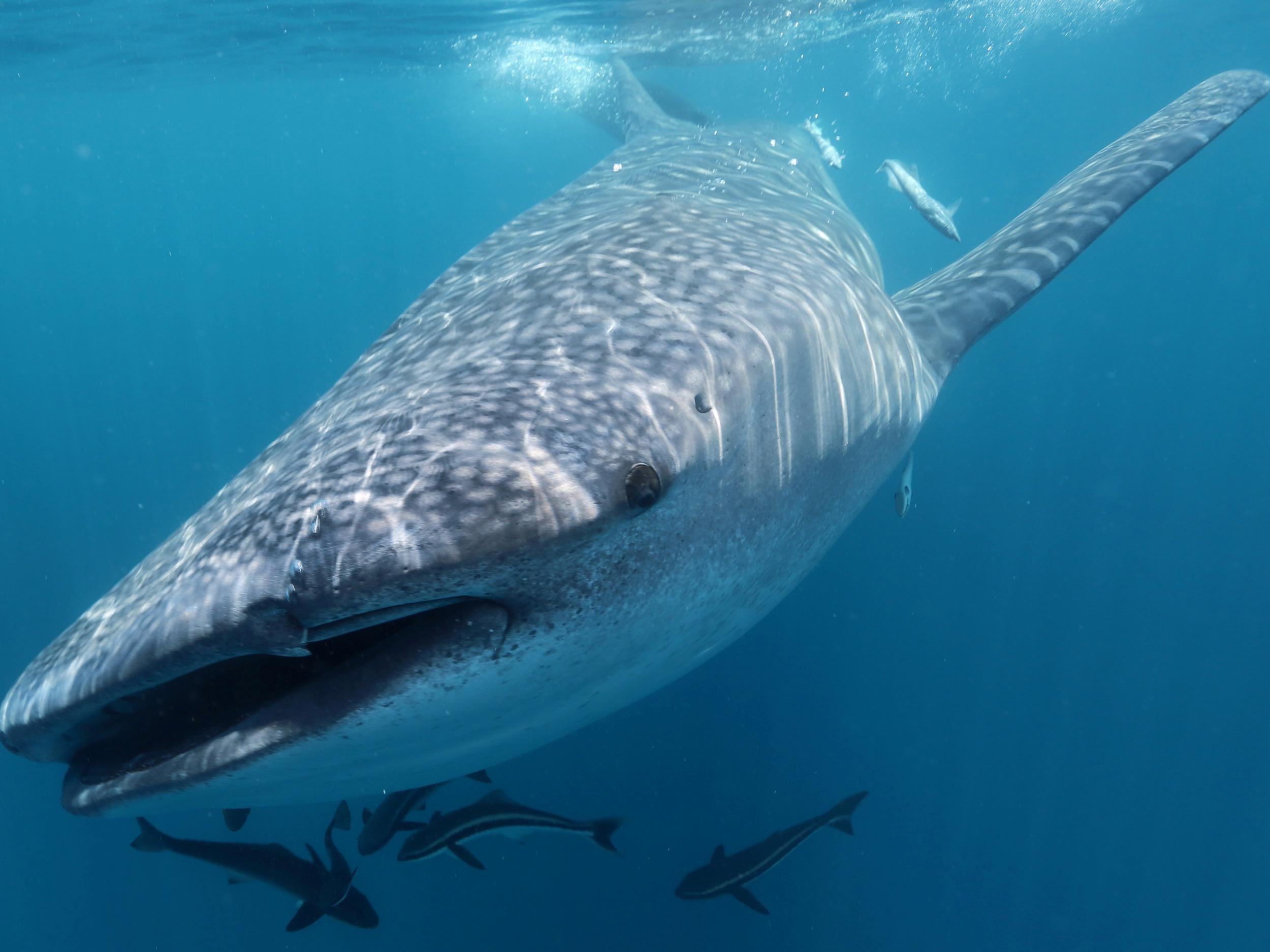Whale shark tracked travelling furthest distance ever recorded
Anne travelled more than 12,000 miles across the Pacific

Your support helps us to tell the story
From reproductive rights to climate change to Big Tech, The Independent is on the ground when the story is developing. Whether it's investigating the financials of Elon Musk's pro-Trump PAC or producing our latest documentary, 'The A Word', which shines a light on the American women fighting for reproductive rights, we know how important it is to parse out the facts from the messaging.
At such a critical moment in US history, we need reporters on the ground. Your donation allows us to keep sending journalists to speak to both sides of the story.
The Independent is trusted by Americans across the entire political spectrum. And unlike many other quality news outlets, we choose not to lock Americans out of our reporting and analysis with paywalls. We believe quality journalism should be available to everyone, paid for by those who can afford it.
Your support makes all the difference.A whale shark has made the longest migration journey ever recorded travelling 12,000 miles across the Pacific Ocean.
The large fish, named Anne by scientists, was tracked making the mammoth migration from near Panama in the south eastern Pacific, to an area close to the Philippines in the Indo-Pacific.
Experts at the Smithsonian Tropical Research Institute followed her signal from Panamanian waters, past Clipperton Island and Costa Rica’s Cocos Island, en-route to Darwin Island in the Galapagos, a site known to attract groups of sharks.
After 266 days of tracking, Anne’s signal disappeared as she went into deep waters, before resurfacing again 235 days later south of Hawaii.
She then made her way to the Marianas Trench – a canyon in the ocean floor where movie director James Cameron located the deepest point on the Earth’s surface almost 11,000 metres below sea level.
The trip was the first recorded evidence of a trans-Pacific migration route for the species of the largest living fish.
Marine biologist Dr Héctor Guzmán, who first tagged Anne near Coiba Island in Panama, said: "We have very little information about why whale sharks migrate.
"Are they searching for food, seeking breeding opportunities or driven by some other impulse?"
Genetic studies show that whale sharks across the globe are closely related, suggesting they must travel long distances to mate. An adult female can travel around 40 miles per day and can dive more than 1,900 metres.
Anne, who was named after conservationist Anne McEnany, president and CEO of the International Community Foundation (ICF), and 45 other sharks were tracked with a Smart Position and Temperature (SPOT) Tags – which only works when close to the surface.
Findings from the project were used to inform policies for the protection of the endangered species.
More than half of the world’s whale sharks, which are sought after for their fins, meat, teeth, cartilage and oil, have disappeared in the last 75 years. Young members of the species often get caught up in tuna nets.
Dr Guzman said: "Whale sharks in Coiba have already changed their behaviour to avoid the surface and tourists.
“These studies are critical as we design international policy to protect trans-boundary species like the whale sharks and other highly migratory marine species."
Whale sharks, which feed off plankton, are normally found in warm waters, with around three-quarters usually found in the Indo-Pacific and a quarter found in the Atlantic.
Large groups numbering as many as 500, are often found off the coasts of countries including Oman, Australia, Galapagos and Mexico as well as Taiwan, Southern China and the Gujarat coast of India.
Co-author and biology professor at Principia College, Dr Scott Eckert, said: “Despite being the world's largest fish, it's amazing to me how little we know about this species."
The report, titled "Longest recorded trans-Pacific migration of a whale shark (Rhincodon typus)", was published in Marine Biodiversity Records.
Join our commenting forum
Join thought-provoking conversations, follow other Independent readers and see their replies
Comments